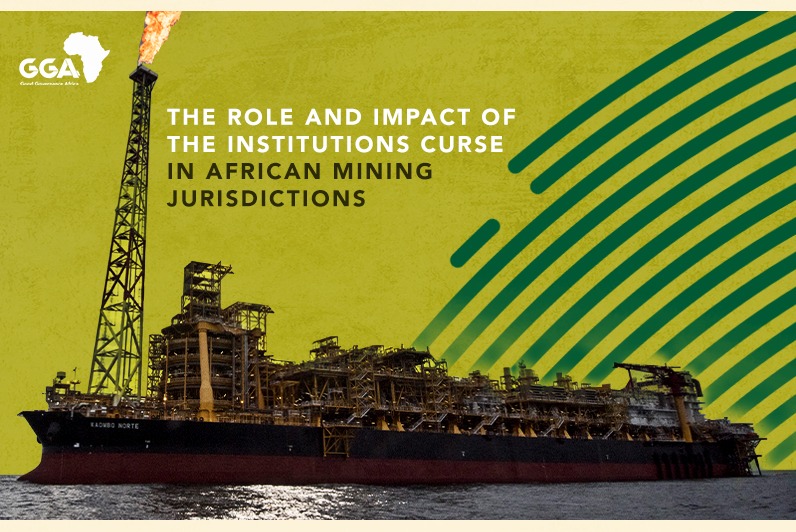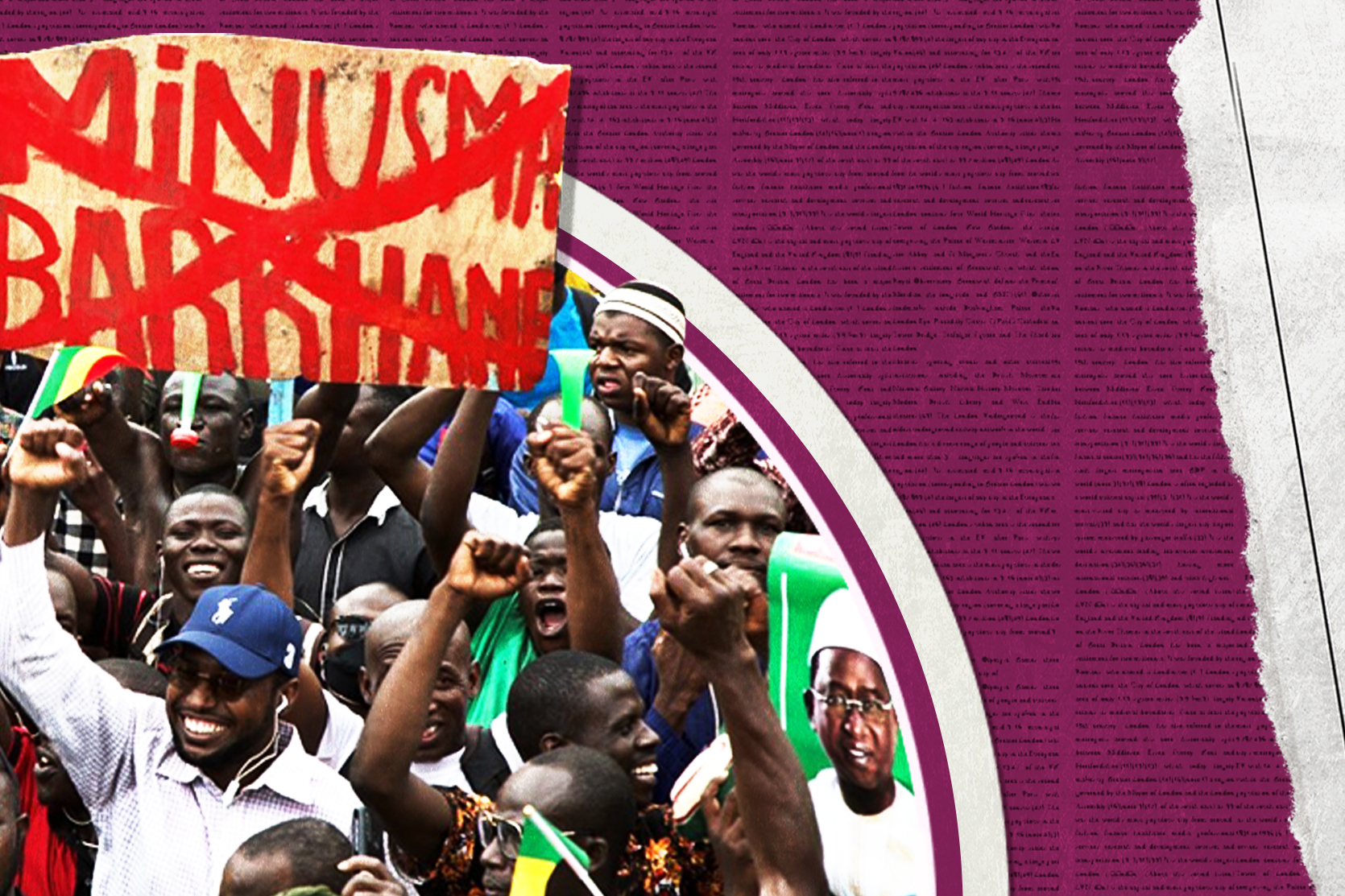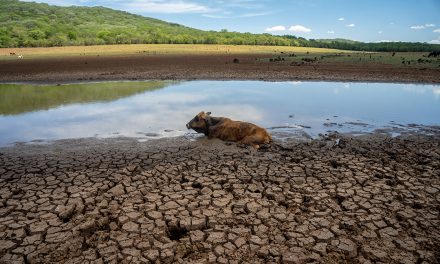
When oil, natural gas, or similar natural resources are discovered the expectation is that their exploitation will dramatically and materially benefit the population of the host country. Notwithstanding this, developing nations frequently experience either (or both) increased corruption (through predatory rent-seeking) or paradoxically slower economic growth after the resources are discovered. This anomaly is often described as the Resource Curse.
While studies have shown that there are various drivers behind the Resource Curse, it tends to arise more frequently in countries that have institutions that either facilitate or encourage rent-seeking, as indicated in the case study of Nigeria below. The rent-seeking behaviour, in turn, tends to compete with productive activity and drains the countries’ economic vitality. Weak institutions and associated illicit conduct are commonly referred to as the “Institutions Curse”.
Developing nations frequently experience either (or both) increased corruption (through predatory rent-seeking) or paradoxically slower economic growth after the resources are discovered.
The role of institutions in determining the effects of natural resources is widely recognised in the literature. Mehlum, Moene and Torvik, for example, have demonstrated, using regression analysis, that the Resource Curse is strongly present in countries with weak institutions but is barely present in countries with the opposite. Mulwa and Mariara in this regard found that GDP growth in resource-rich countries is also dependent on the strength of property rights and other governance indicators. Their findings were supported by earlier studies by Mehlum et al. who suggested that the growth effects of resource abundance often depend on the quality of a country’s governance institutions, which determine returns on investment as well as the scope for rent-seeking. Natural resource dependence coupled with institutional weakness often invites rent-seeking and corruption with a concomitantly detrimental effect on the economy.
If these research findings are correct, the Resource Curse may simply be an idiom for doing politics inserted into a pre-existing political landscape fraught by rent-seeking forces and power-broking that directs those rents towards the patronage circles that maintain elite power. Accordingly, where the Resource Curse exists, it probably lies in the deeper political economy of institutions, rather than in economic management per se. In developing economies with weak institutions, not least in African resource jurisdictions, natural resources are often proxies for politics.
If one looks at African resource jurisdictions, there are various examples of where the discovery of natural resources has been followed by conflict, environmental damage and economic instability. Again, this was frequently owing to the absence of effective institutional and legal frameworks.
The Resource Curse is strongly present in countries with weak institutions but is barely present in countries with the opposite.
First, for obvious reasons, resource abundance provides a strong incentive for conflict and plunder in countries afflicted by institutional weakness, poor governance, and economic mismanagement. The circumstances are axiomatically aggravated by factors such as unemployment and rampant poverty. The Democratic Republic of Congo (DRC) and the countries around the Great Lakes are often cited as examples of this.
Second, the discovery of resources often occurs before the government establishes a regulatory framework to ensure that the resource in question is exploited in a sustainable manner. The absence of clear rules which dictate how the environment and community interests should be protected often results in significant harm to the natural environment.
Third, the prospects of significant wealth may prompt economic instability. According to Poelhekke and Van der Ploeg “volatility in natural resource revenues, induced by volatility in primary commodity prices, curbs growth in economies with badly functioning financial systems”. When the discovery of a significant resource promotes economic activity to focus on a single resource, a country’s economic stability may be tied to a particular commodity price (such as the Brent crude oil price). Fluctuations in commodity prices consequently have ripple effects on domestic economies. Countries whose economic stability is linked to a single commodity, such as oil, may struggle to maintain their foreign exchange reserves when the price of the commodity falls precipitously. After such an event, governments often have little choice but to use their remaining reserves to pay for essential imports or service their external debt repayments. If these reserves are severely depleted, this may lead to a balance of payment crisis that may eventually develop into a fully blown financial crisis (key African oil producers such as Nigeria, Congo-Brazzaville and Angola are examples of this). Flawed expectations based on an expected increase in commodity prices often encourages commodity producers to go on a debt-fuelled expenditure binge with potentially calamitous economic consequences.
Resource abundance provides a strong incentive for conflict and plunder in countries afflicted by institutional weakness, poor governance, and economic mismanagement.
Finally, corruption abounds on the back of institutional weakness. Natural resource concessions that permit a company to engage in resource exploitation can be extremely valuable. This may lead to companies or individuals using undue influence to obtain such concessions, influence the terms offered in these, or gain favourable treatment in other ways. This has been most recently illustrated in the corruption trial and subsequent conviction of Israeli businessman, Beny Steinmetz. The Geneva Criminal Court recently found that Steinmetz paid bribes of US$8.5 million to Mamadie Toure, the wife of Guinea’s deceased former president Lansana Conte to help secure rights to the country’s Simandou iron ore resources worth an estimated value of US$5 billion.
The blame for the worsening of social indicators and the prevalence of the Resource Curse in resource rich countries can accordingly be placed on institutional weaknesses and resultant corruption. In an attempt to avoid the Resource Curse, a country should therefore establish well-functioning democratic institutions. The government in question should also promote transparency as to how resource revenues are collected and spent, foster a diverse industrial and economic base, a stable currency and interest rates, and a balanced import/export ratio. Botswana is an example of an African resource jurisdiction which has achieved this utilizing its singular diamond wealth.
Corruption abounds on the back of institutional weakness.
A developing nation, it translated its resource wealth from diamonds into economic growth and development opportunities for its citizens by implementing mechanisms which ensure that a significant part of its mineral resource revenue is allocated for investment in health and education. In addition, the country invested a portion of its resource wealth in its Pula Fund, a sovereign wealth fund which serves as a buffer against price volatility and preserves a share of the rents from diamond exports for future generations.
By contrast, the DRC has fallen victim to the Resource Curse. Although the DRC is the biggest copper producer in Africa and one of the top five copper producing countries globally, its mineral resources have historically contributed to politically volatility with several local conflicts ensuing over the control or distribution of wealth. Notwithstanding the DRC’s significant mineral wealth, the average Congolese citizen earns an annual income of less than US$581, resulting in the DRC ranking as one of the world’s poorest nations.
The Resource Curse is by no means unescapable. Countries such as Botswana have avoided the Resource Curse by encouraging economic diversification, investment and an equitable distribution of accrued rents. Key to Botswana’s success is the 50-50 joint venture between the Botswanan government and De Beers, initially concluded three years after independence in 1969. The joint venture, aptly named Debswana, contributes 30 per cent of Botswana’s annual revenues, which is then invested in social spending. Owing to its economic importance to the national economy, Debswana’s operations have a significant impact on development in Botswana. The Botswanan government has used its regulatory role to integrate the company’s mining activities and corporate social investment programs into national development plans.
The Resource Curse is by no means unescapable. Countries such as Botswana have avoided the Resource Curse by encouraging economic diversification, investment and an equitable distribution of accrued rents.
In many cases, strong economic institutions in place play a vital moderating role in transforming the Resource Curse into a blessing. To counteract the Resource Curse, governments should follow Botswana’s example and invest revenues received from the exploitation of natural resources in a manner which would promote further investment and growth. While this could include establishing Sovereign Wealth Funds or allocating revenues into national or sub-national budgets, the aim should be to promote job creation and skills transfer across all economic sectors. Finally, in addition to building strong economic institutions, national leaders would be wise to focus on strengthening the rule of law and property rights and promoting transparency as to how resource revenues are collected and spent.
Case study: NigeriaNigeria is a resource-abundant country. While the per capita income in Nigeria in 2020 was approximately US$2,600, an estimated 91 million Nigerians are currently living on less than US $2/day (World Poverty Clock). These statistics suggest that only a select few have benefitted from Nigeria’s oil booms and rents and the majority of Nigerians are yet to derive any benefit. There are many reasons why Nigeria’s resources have not improved the living standards of the majority of citizens. In light of the preceding discussion, one of the key drivers may be the existence of institutions that encourage rent-seeking activities by politically connected entrepreneurs, instead of productive economic activities. Since independence in 1960, the development of Nigeria has been affected by several successive military juntas and the country has been plagued by violence and repeated military coups. Axiomatically, the volatile political environment was exacerbated by the influx of oil rents in the absence of other sustained economic activity. The discovery of oil in Oloibiri in the Niger Delta in 1956 filled many with a sense of optimism, but oil wealth only became a major factor in Nigeria’s political economy in the early 1970s, when the price dramatically increased as a result of the global supply crisis. Unexpected oil wealth exacerbated the pre-existing fragility brought on by the military coups in the 1960s. For many decades Nigeria was one of the world leaders in oil production with a centralized, state-centric economy. Government control of the oil industry only intensified as the world experienced an oil shock that caused a steep rise in oil prices, beginning in 1973. High oil revenues led the government to ignore traditionally strong sectors in favour of the oil industry. Nigeria’s agricultural sector shrank from 62.9 per cent of GDP in 1960 to a low of 20.6 per cent in 1980, while the oil sector grew from 0.2 per cent to 29.1 per cent in the same years. When oil prices declined (with a concomitant decline in revenue), national debt rose sharply throughout the 1980s. Unable to deal with its fiscal and economic problems, the government, with the help of the IMF, instituted a Structural Adjustment Programme in 1986 (SAP). The programme sought to liberalize the economy through measures such as tariff reductions, deregulation of agricultural prices, and the liquidation and sale of state-owned companies. As a result, exports began to rise. While some stability was achieved through the SAP, unemployment continued to rise during the period of 1986 to 1992 and any attempts to reduce fuel subsidies resulted in riots. By 1992 all IMF agreements had ended, and Nigeria reverted to another downward spiral. The poverty rate, unemployment level, and level of economic growth in Nigeria in the post-SAP era led to the question of whether the Bretton Woods Institutions were realistic in using the SAP to promote economic growth by achieving the objectives specified in the economic reform package. As argued by Sala-i-Martin and Subramanian (2003), who examined Nigeria specifically, one of the greatest impacts of the resource curse on growth is its deleterious impact on institutional quality. For instance, during the political chaos of 1993, General Sani Abacha seized control of Nigeria following a military coup. Under his rule most democratic institutions were dismantled and the regime became increasingly brutal, relying on arrests, detentions, and executions to exert control. At the same time, corruption and mismanagement of the economy were rampant and an estimated US$4 billion in government funds was ultimately misappropriated by the Abacha regime in the 1990s. The Nigerian government has sought to recoup the funds looted by Abacha and have to date repatriated more than US$2 billion with the cooperation of other countries. The death of General Abacha in 1998 and enactment of a new Constitution in 1999 signalled a change in Nigeria’s development. In an attempt to address the consequence of the Resource Curse the government institutions started opening up policy-making processes with the aim of increasing citizens’ participation and their own transparency and accountability. The first significant democratic outcome occurred in 2015, when then Nigerian President Goodluck Jonathan became the first sitting Nigerian President to concede electoral defeat when he handed over power to incumbent President Muhammadu Buhari. This followed an election that was, for the large part, free, fair and comparatively peaceful. The success of the election was by and large owing to Presidents Jonathan and Buhari as well as their parties’ commitment to the terms of an inter-party agreement concluded between the statesmen guaranteeing peaceful Presidential elections and respect for the outcome of the election. This was precedent setting for Nigeria (as well as many parts of the world) and a further signal of the country’s commitment to democracy. President Buhari was subsequently re-elected President by a relatively large margin at the end of February 2019. As indicated in our previous blog post on Nigeria and Angola, however, Nigeria remains fragile despite this positive evolution towards a more open and competitive political settlement. |
Peter Leon is a partner and global Africa chair at international law firm Herbert Smith Freehills.
During the last decade, the international who's who directories of mining lawyers, Best Lawyers, The Legal 500 (EMEA), Chambers and Partners, and other peer-reviewed global legal directories, have consistently identified him as one of the world's pre-eminent mining lawyers.
In 2021, he was named "one of the top mining lawyers in the world" (Who's Who Legal: Mining 2021) and recently, Chambers Global Guide: Energy & Natural Resources: Mining 2022 ranked Peter in Band 1, with sources stating that, "He brings solutions to issues you wouldn't think of, bringing to bear relevant experience from right across Africa."
Peter excels in helping resolve contentious issues arising from mining projects and related developments in Africa. His areas of expertise include crisis management, resource nationalism, mineral and petroleum regulation in developing countries (including international best practice), black economic empowerment and indigenisation law, international investment law, and investment protection. Owing to Peter's expertise, he has significant experience in resource regulatory issues across Anglophone Africa.
Consequently, he regularly advises clients on an array of contentious matters involving states in sub-Saharan Africa, including disputes arising from the negotiation and implementation of major mine development agreements. He is also well versed in the sub-Saharan African geopolitical climate and accordingly provides strategic advice not only on issues related to the mineral regulatory framework, but also on how to navigate the framework within the prevailing economic and political conditions in key African mining jurisdictions. He is particularly skilled in crisis management, and has provided expert advice on an urgent basis to clients to assist them in managing and mitigating significant country risks.
Peter’s experience also includes the Middle East, where he has recently represented the Kingdom of Saudi Arabia as international legal counsel on the Ministry of Industry and Mineral Resources’ mineral law reform project.
Peter is an accomplished speaker and a regular presenter and panellist at conferences, courses and parliamentary hearings in South Africa and internationally. He has also written extensively on the topics of mining, resource nationalism, the regulation of foreign direct investment, and black economic empowerment and indigenisation law. He was a council member of the Legal Practice Division of the International Bar Association responsible for the Africa Regional Forum, the chair of the International Bar Association’s mining law committee advisory board, and is an honorary lecturer at the University of Dundee in Scotland's Centre for Energy, Petroleum and Mineral Law and Policy.













